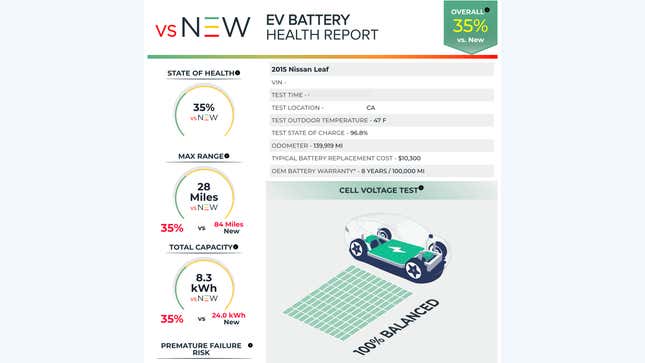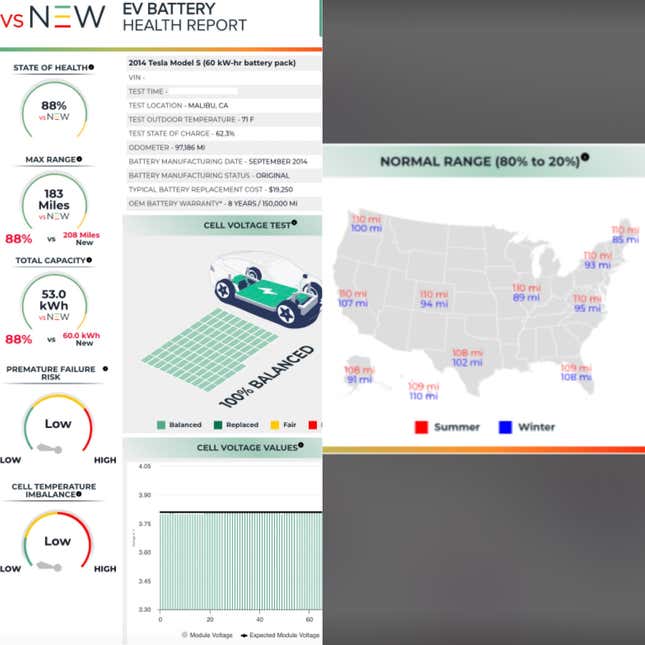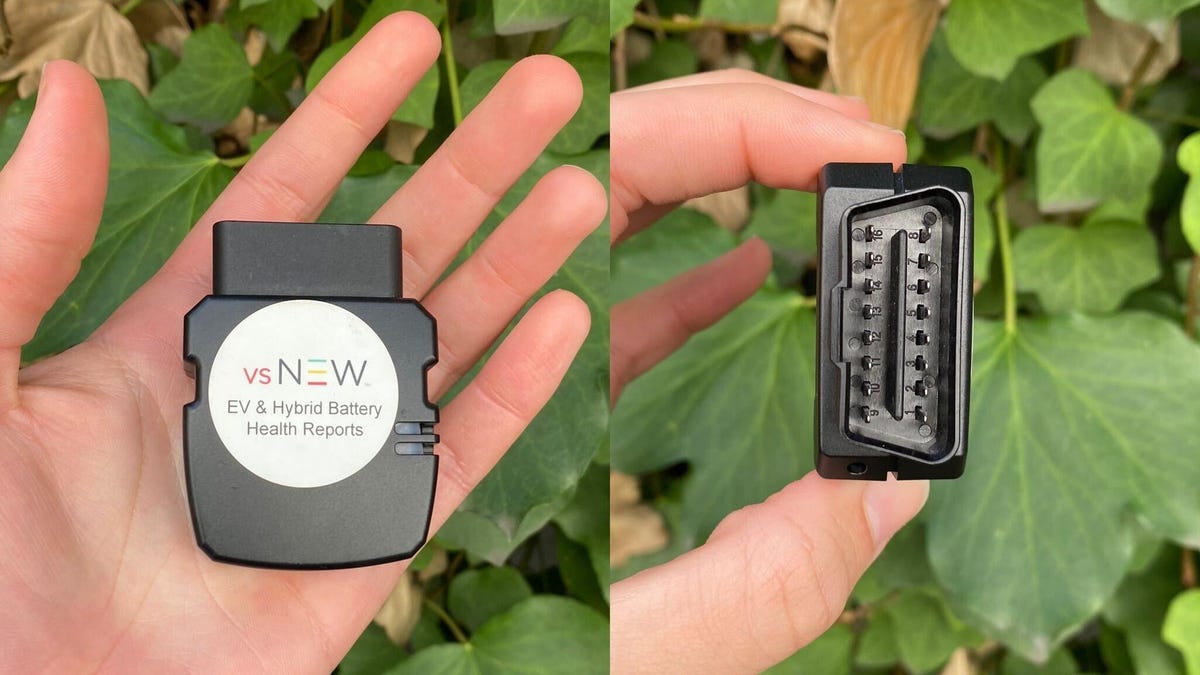Buying a used EV or hybrid can be risky since there is no way to truly know the health and potential remaining longevity of these cars’ integral batteries. Or, at least that was the case until recently. A new product called vsNEW is currently aimed at dealers, but the team is considering making it publicly available, too. It’s a dongle that plugs into most OBD scanner ports, reads the car’s battery health, and sends its findings in a report to your email within a matter of minutes. Sounds brilliant, but does it work? To find out, I headed out to scenic Malibu to host a test day for local Jalopnik readers who drive EVs, hybrids or PHEVs to have their battery health tested.
In short, the product worked great. It collected battery health reports from each car that visited, and every single owner was thoroughly interested in knowing more about how their electrified car’s battery is holding up. Thankfully, I didn’t have to tell anyone that their car’s battery was useless and they should consider either replacing it or filing for bankruptcy now.
The batteries in electrified cars are usually similar to the batteries in a phone or laptop. As many of us readers over the age of 25 have learned through years of owning various evolutions of rechargeable technology, a device’s battery degrades over time, leading to increasingly shorter battery life. The same goes for electrified cars, but electrified car battery technology varies greatly and some batteries hold up better than others. The Nissan Leaf, for example, has a battery health indicator on the car’s gauge cluster. Since the Leaf doesn’t have liquid cooling to keep the battery under optimal conditions more consistently, Leaf batteries tend to degrade rather noticeably. Cars with liquid cooling usually retain battery health for longer periods of time, but vsNEW eliminates guesswork and risk taking when buying a used electrified car.
The product provides useful metrics on most vehicle’s batteries, including typical battery replacement cost, manufacturer warranty info, battery state of health, real-world maximum range, total battery capacity, premature failure risk, fast charging history, cell temperature imbalance, and a normal range expectation in different regions in different seasons. These all come together to offer a consumer a real-world understanding of a car’s potential longevity that could help them avoid buying a dud.

I had a vsNEW product engineer with me, who actually owns a 2015 Nissan Leaf that he bought new and has put nearly 140,000 miles on. He said that his car’s range has gone down from about 70 miles on a full charge when new, to now just about 20 miles on an indicated full charge. His car’s battery health gauge indicates five out of 12 bars of health, and his vsNEW report corroborates that by showing his battery’s state of health at 35 percent. Very few EVs have built-in battery health indicators, so that cements the importance of a tool like vsNEW which can measure the battery health on most used EVs and hybrids.
We tested several newer EVs, and they all had commendable battery health. The oldest and highest mileage vehicle that we tested was a 2014 Tesla Model S with the 60 kWh battery pack that had over 97,000 miles on the odometer. vsNEW estimated that this Tesla’s battery is 88% healthy, and has only lost about 25 miles of potential range versus when it was new. vsNEW can also share metrics on how well a car’s cell voltage is balanced, and a real-world range estimate for your particular vehicle in different regions across the United States accounting for both summer and during winter conditions, all very useful information for someone who’s looking to purchase a used electrified car to have a better idea of what they’re getting themselves into.

We are not sponsored by this company, and we aren’t gaining anything from sharing this story. We chose to put this product to the test since it has the potential to help consumers everywhere as we learn how to navigate the changing automotive landscape. Buying a car is usually a tough process for folks, and buying a used EV is even harder. The knowledge that this product offers consumers could save thousands from the nightmare of buying an electrified car with a bad battery.

